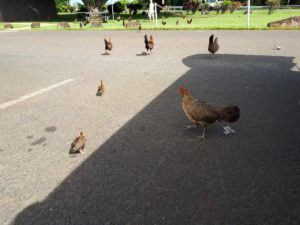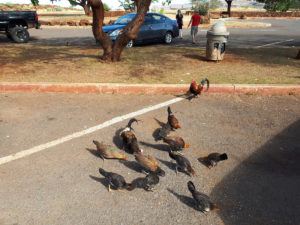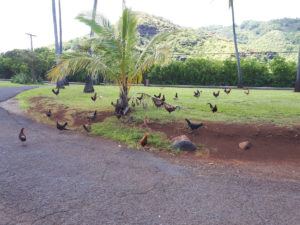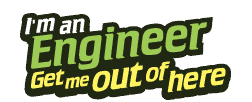Profile
Martin Johnsson
Live chatting was intense and fun. Whew.
-
About Me:
Hi! My name is Martin, and I’m looking forward to speaking with you as part of this zone. I’m an animal geneticist at the Swedish University of Agricultural Sciences. I work with the DNA of cows, pigs and chickens … and sometimes dogs, horses, any farm, companion or sport animal, really.
-
Read more
I live in Uppsala in Sweden, but before that, I used to work at the Roslin Institute, Scotland.
I’m an associate professor, meaning that my job is to lead research projects, and also to teach about genetics and animal science.
-
My pronouns are:
he/him
-
My Work:
I study the DNA of cows, pigs and chickens to understand them better and improve animal breeding.
-
Read more
I study the DNA of pigs and chickens. Ever since the Human Genome Project, that ended in 2003, there has been an explosion of data on the DNA of different species. The only way to make sense of it all is to use computing and statistics.
I use computers (and sometimes laboratory techniques, though it was a couple of years since I did any lab work myself) to learn about genetic differences between individuals, and how they affect what they are like.
In particular, I work on these things:
Complex traits – Some inherited traits are simple with only a few genes, for example: rare genetic disorders in humans and white feathers in chickens. But a lot of the traits that we care about, like how fast a pig grows or how large eggs a chicken will lay, are affected by many genes, and also influenced by the environment the animal lives in. They are called “complex traits”, because they’re affected by many genetic and environmental factors.
I have worked with various complex traits, like bone density and thickness, body weight, and the size of the chicken comb. (Yes, the comb on top of the chicken’s head. I’m not joking. The chicken comb is actually a pretty interesting complex trait with some relevance to chickens’ social life.)
Animal breeding – Animal breeding is the science of how to select animals to improve traits that are useful for humans. Animal breeding aims to make animals grow better, be healthier, produce better quality food and so on. Modern animal breeding uses a lot of genetics and DNA analysis to pick the animals that are most suited to breed on.
My colleagues and I collaborate with several breeding companies on research projects. This benefits both of us – the companies get cutting edge research to help develop their breeding programs, and we the scientist get to work with the large datasets that animal breeders collect.
Evolution – Just like breeding changes the DNA of animals over generations, so does evolution change the genetic makeup of all living things over time. Genetic differences between individuals build up to form differences between populations, and eventually differences between species.
I’ve done some work on domestication in chickens, which is the evolutionary process when a population of animals change in response to a life with humans. For example: domestic chickens stem from Red Junglefowl, a wild chicken species that still lives in southeast Asia. Chicken domestication started around 8000 years ago. On an evolutionary timescale, that’s not so long ago.
Mutation – Mutation is how new genetic variants arise, as errors in DNA. Most mutations do nothing at all, but some are damaging, because they break the normal function of genes. A part of my research is searching for damaging genetic variants in pigs, and trying to figure out ways to make use of that information in breeding.
Here are some images of the feral chickens of Kauai, one of the Hawaiian islands, that I have worked with:



-
My Typical Day:
I spend most of my working time in front of my computer, either writing computer code, documents or emails.
-
Read more
It depends! But a lot of the activities take place in front of my computer, where I write code and manuscripts, read papers, and do all of the typical office work involved in science. I also talk with my colleagues, in person and via videoconference and chats, and go to talks and seminars. Sometimes I teach lessons, or take part in activities such as this chat.
-
What I'd do with the prize money:
I would donate them to Midlothian Science Festival.
-
Education:
I went to school first in Finspång (the town where grew up), and Norrköping (the neighbouring town) in the south of Sweden.
Then I studied engineering biology at the University of Linköping. That’s also where I did my PhD in genetics.
-
Work History:
When I was a student, I used to work in an aluminium rolling mill during the summers.
-
My Interview
-
What did you want to be after you left school?
An engineer.
Were you ever in trouble at school?
Not really. Mum worked at my school as a craft teacher, that might have something to do with it.
Who is your favourite singer or band?
Oh, it's hard to choose one, but I think my all time favourite is Ani Difranco.
What's your favourite food?
Potatoes in some form or another.
If you had 3 wishes for yourself what would they be? - be honest!
A permanent job in science, a long life, and a Gandalf-like white beard.
Tell us a joke.
Why shouldn't a chicken cross the road? That would be a fowl proceeding.
-

Comments